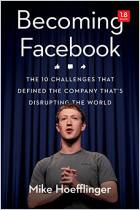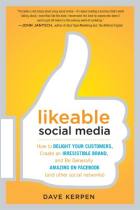
Think Like Zuck
The Five Business Secrets of Facebook’s Improbably Brilliant CEO Mark Zuckerberg
Recommendation
In 2004, Mark “Zuck” Zuckerberg and some college friends designed and created Facebook as a local computer service to connect Harvard students. Now it is a global social network, an information-sharing and communication entity that links more than one billion users. Author and Intel social media innovator Ekaterina Walter presents Facebook and its founder and CEO, Mark Zuckerberg. She focuses on the five principles that enabled Zuckerberg to make Facebook a business success. Walter provides a detailed profile of Zuckerberg and his Internet realm, though she writes as if her approach to it is universal: “We check Facebook before we go to bed and first thing in the morning when we wake up.” Well, maybe not all of us. She offers a warm picture of Facebook but she doesn’t explore any serious related issues, such as privacy and surveillance, which matter because no other social network comes close to Facebook’s penetration and influence. This makes Zuckerberg important, but perhaps not quite as perfect as Walter’s glowing biography might suggest. She ably explains why Zuckerberg has become such a singular success and how others can emulate his business activities and achievements. getAbstract recommends Walter’s spotlight on Zuckerberg’s path to accomplished and aspiring networkers.
Summary
About the Author
Ekaterina Walter works in social media at Intel. She is a regular contributor to The Huffington Post, Fast Company, Mashable and other publications.

























Comment on this summary or Начать обсуждение